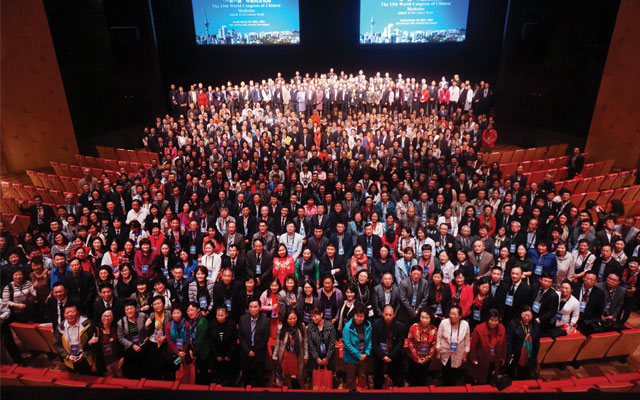Experience is the best teacher and WFCMS takes many lessons from its recent event
The World Federation of Chinese Medicine Societies (WFCMS) decides two years in advance the location of its annual congresses and it is based on how supportive the local TCM (traditional Chinese medicine) association member and the local tourism authorities are, good global air access, and sufficient room inventory to accommodate more than 1,000 delegates.

According to Wang Jing, director, department of international liaison, WFCMS, and director Office of the World Congress of Chinese Medicine, a venue that combines meeting space and hotel accommodation is preferred to avoid the risk of being stuck in traffic.
Apart from the plenary sessions, the congress also requires at least 10 breakout spaces for 50 and 200 people for concurrent sessions.
Wang said: “Attendance at the 13th congress was below our usual 1,000 to 1,300 delegates due to New Zealand’s small population size and the local association membership numbers.”
An issue arose from visa applications made by members in China, who make up the biggest delegation.
Wang said: “Those who work in state-owed hospitals carry a different passport from civilians. As they chose to attend as individual members and not as representatives of their organisations, we did not help them apply for a business visa, which was also more costly than a travel visa. On hindsight, we should have alerted the embassy, which did not know the many applications they received were from our members who wanted to attend the congress in Auckland as individual association members.”
As a result, the process took more time than expected and the PCO, which was unsure if the visas would be approved, cancelled some of the hotel bookings. That left WFCMS with 200 rooms short and a travel agent in China had to be scrambled to find rooms online.
“The time difference did not help as well as New Zealand is five hours ahead of China. Furthermore, New Zealanders do not work overtime,” added Wang.
“The PCO is experienced and has good ideas but it was working with a China-based association for the first time and there was a learning curve,” she remarked.
However, WFCMS applauds the New Zealand hosts for their warmth, kindness and patience, and for fully hosting six association VIPs.
“We also appreciated the help from the hosts in inviting celebrities and government officials to the event,” he added.
The experience brought WFCMS several lessons.
Wang said the association should avoid timing the annual event during high season as costs could be 20 to 30 per cent higher and up to 50 per cent for some services.
A must-have is the right conference management system with a robust online platform for registration, the submission of medical papers and their review, which streamlined operations and made it more convenient for everyone.
Wang commented: “In future for our members’ accommodation, we will look at asking the local host committee instead of the PCO to sign the hotel contract so that we know the hotel policies more directly.
“As for visa applications for our China members, we have learnt that it pays to communicate with the embassy of the host country beforehand.”
Event 13th World Congress of Chinese Medicine
Organiser World Federation of Chinese Medicine Societies and New Zealand College of Chinese Medicine
Date November 12 to 13, 2016
Venue Aotea Centre, Auckland, New Zealand
No. of attendees 800
Challenges The dates coincided with high-season travel in New Zealand, resulting in higher costs; unexpected delays in visa application for China members attending as private citizens, which resulted in hotel room cancellation; work culture clash; additional manpower needed to assist speakers with the venue’s powerpoint control system











